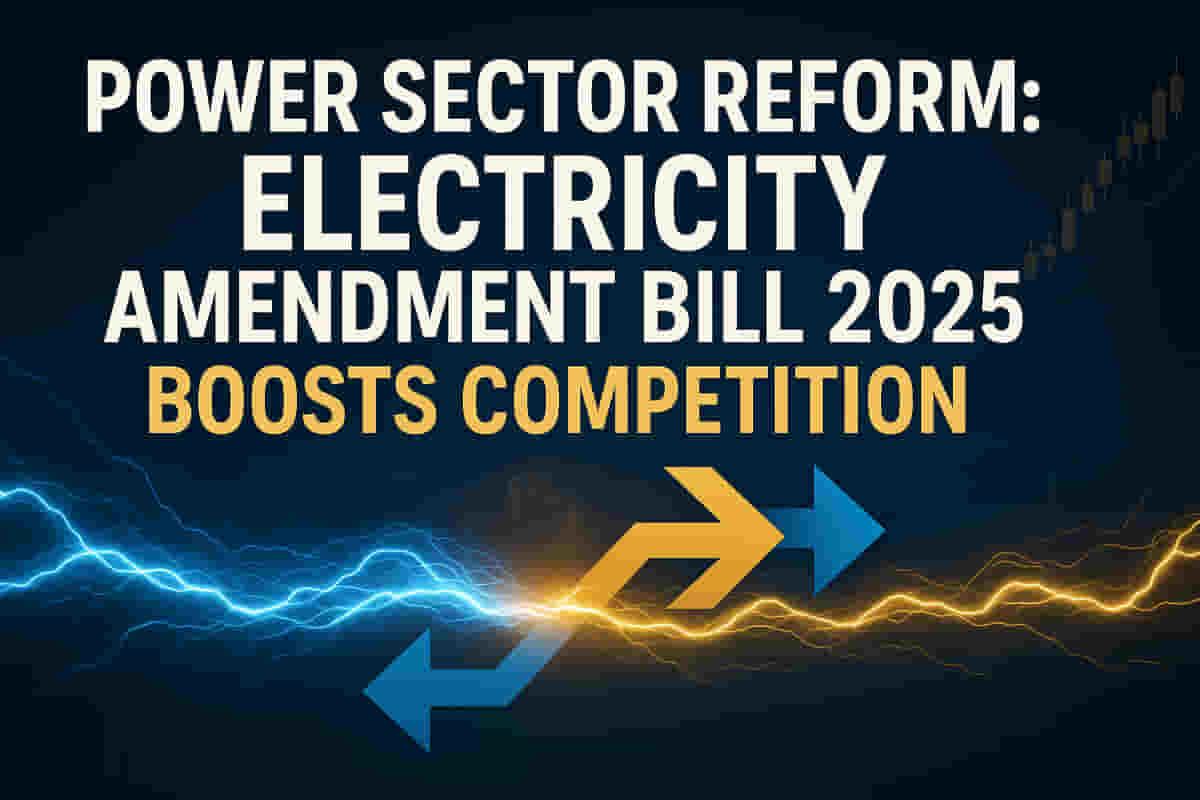Power Ministry Unveils Electricity Amendment Bill 2025 for Sector Reform, Competition, and Farmer Subsidy Protection
Energy
|
30th October 2025, 3:07 PM

▶
Short Description :
Detailed Coverage :
The Power Ministry has described the Electricity (Amendment) Bill 2025 as a forward-thinking reform designed to bolster the power distribution sector through financial prudence, robust competition, and increased efficiency. The legislation is intended to establish a future-ready power infrastructure while safeguarding subsidized tariffs for farmers and other qualifying consumers. State Governments will continue to offer these subsidies under Section 65 of the Act. The Bill encourages healthy competition between government-owned and private distribution companies (Discoms) for electricity supply, overseen by State Electricity Regulatory Commissions (SERCs). The Ministry asserts that the passage of this Bill will lead to superior services, greater efficiency, and genuine choice for consumers, fostering competition based on performance.
Impact This reform is expected to significantly impact the power sector by driving down overall electricity costs through improved efficiency and accountability. Shared network usage will prevent duplication of infrastructure, and competition is anticipated to reduce technical and commercial losses, which often mask inefficiencies and theft in monopoly models. Cost-reflective tariffs will help break the cycle of Discom debt, ensuring reliable service and network upgrades. Eliminating hidden cross-subsidies for industries and replacing them with transparent, budgeted subsidies will improve the competitiveness of businesses and aid job creation. Regulated wheeling charges will ensure utilities are adequately funded. The model promotes regulated competition, benefiting both government and private entities, and preserves federal balance by maintaining state autonomy in key regulatory functions. Rating: 8/10
Difficult Terms Discoms: Distribution companies responsible for supplying electricity to consumers. SERCs: State Electricity Regulatory Commissions. Independent bodies that regulate electricity tariffs and operations within a state. Cost-reflective tariffs: Electricity prices that cover the actual cost of generating, transmitting, and distributing power, plus a reasonable profit. Cross-subsidy: A system where consumers paying higher tariffs subsidize those paying lower tariffs. Wheeling charges: Fees paid to use the electricity distribution network to deliver power. Universal Service Obligation (USO): The requirement for electricity providers to supply electricity to all consumers in their area. Concurrent List: A list in the Indian Constitution allowing both central and state governments to legislate on certain subjects. Cooperative Governance: A system of collaboration between different levels of government.